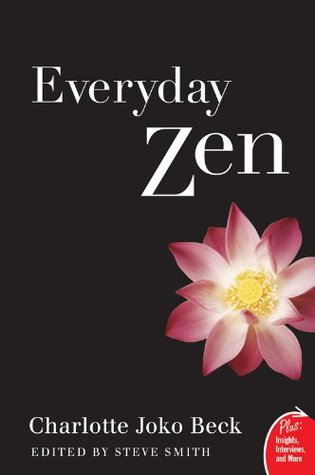More on this book
Community
Kindle Notes & Highlights
There is no paradise lost, none to be regained. Why? Because you cannot avoid this moment. You may not be awake to it, but it is always here. You cannot avoid paradise. You can only avoid seeing it.
We human beings all think there is something to accomplish, something to realize, some place we have to get to. And this very illusion, which is born out of having a human mind, is the problem. Life is actually a very simple matter. At any given moment in time we hear, we see, we smell, we touch, we think. In other words there is sensory input; we interpret that input, and everything appears.
When we are embedded in life there is simply seeing, hearing, smelling, touching, thinking (and I don’t mean self-centered thinking). When we live this way there is no problem; there couldn’t be. We are just that. There is life and we are embedded in it; we are not separate from life. We just are what life is because we are being what life is; we hear, we think, we see, we smell, and so on. We are embedded in life and there is no problem; life flows along. There is nothing to realize because when we are life itself, we have no questions about life. But that isn’t the way our lives are—and so
...more
When we are experiencing nonverbally we are walking the razor’s edge—we are the present moment. When we walk the edge the agonizing states of separateness are pulled together, and we experience perhaps not happiness but joy. Understanding the razor’s edge (and not just understanding it, but doing it) is what Zen practice is.
And I want to add that, in following the breath, it is best not to try to control it (control is dualistic, me controlling something separate from myself), but just to experience the breath as it is: if it is tight, experience tightness; if it is rapid, experience that; if it is high in the chest, experience that. When the experiencing is steady, the breath will gradually become slow, long, and deep. If attachment to thoughts has markedly diminished, the body and breath will eventually relax and the breath will smooth out.
My nervousness is what? Since it exists right here now, if I’m nervous, that is nirvana, that is the absolute. That’s it. There’s no place to go; we’re always right here. Where could we be except where we are? We always are as we are. Our innate intelligence knows who we are, it knows what we’re about in this world if we don’t muck it up.
So practice is not just coming to sesshin or sitting each morning. That’s important, but it’s not enough. The strength of our practice, and the ability to communicate our practice to others, lies in being ourselves. We don’t have to try to teach others. We don’t have to say a thing. If our practice is strong it shows all the time. We don’t have to talk about the dharma; the dharma is simply what we are.
One important aspect of our practice is to look honestly at this constant process of hopes and fears and all the schemes that are a reflection of our lack of commitment to our lives. To do this requires that we shut the door that we like so much to leave open, and turn around and face ourselves as we are. This is commitment, and without it there is no freedom.
Zen practice is shutting the door on a dualistic view of life, and this takes commitment. When you wake up in the morning and don’t want to go to the zendo, shut the door on that. Put your foot out of bed and go. If you feel lazy during work, shut the door on that and do your best. In relationships, shut the door on the criticism and unkindness. In zazen, shut the door on dualism and open up to life as it is. Very slowly, as we learn to experience our suffering instead of running from it, life is revealed to us as joy.
When expectation fails—when we don’t get what we’re after—at that point, practice can begin. Trungpa Rinpoche wrote that “Disappointment is the best chariot to use on the path of the Dharma.” Disappointment is our true friend, our unfailing guide; but of course nobody likes such a friend.


